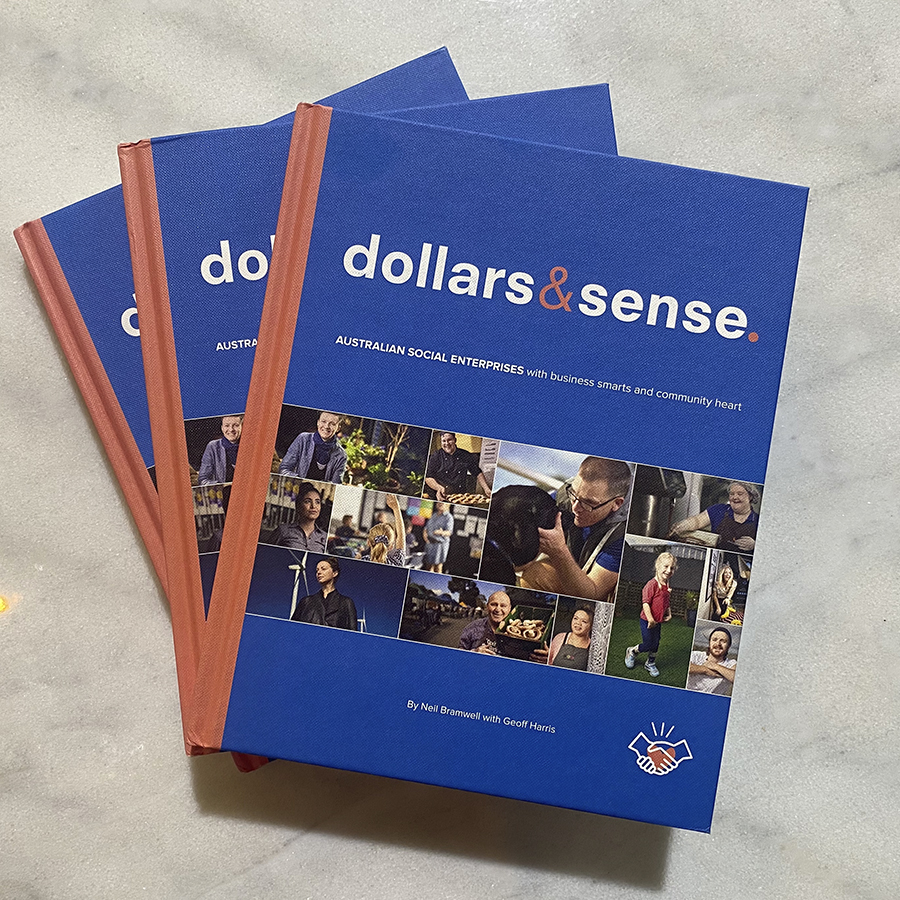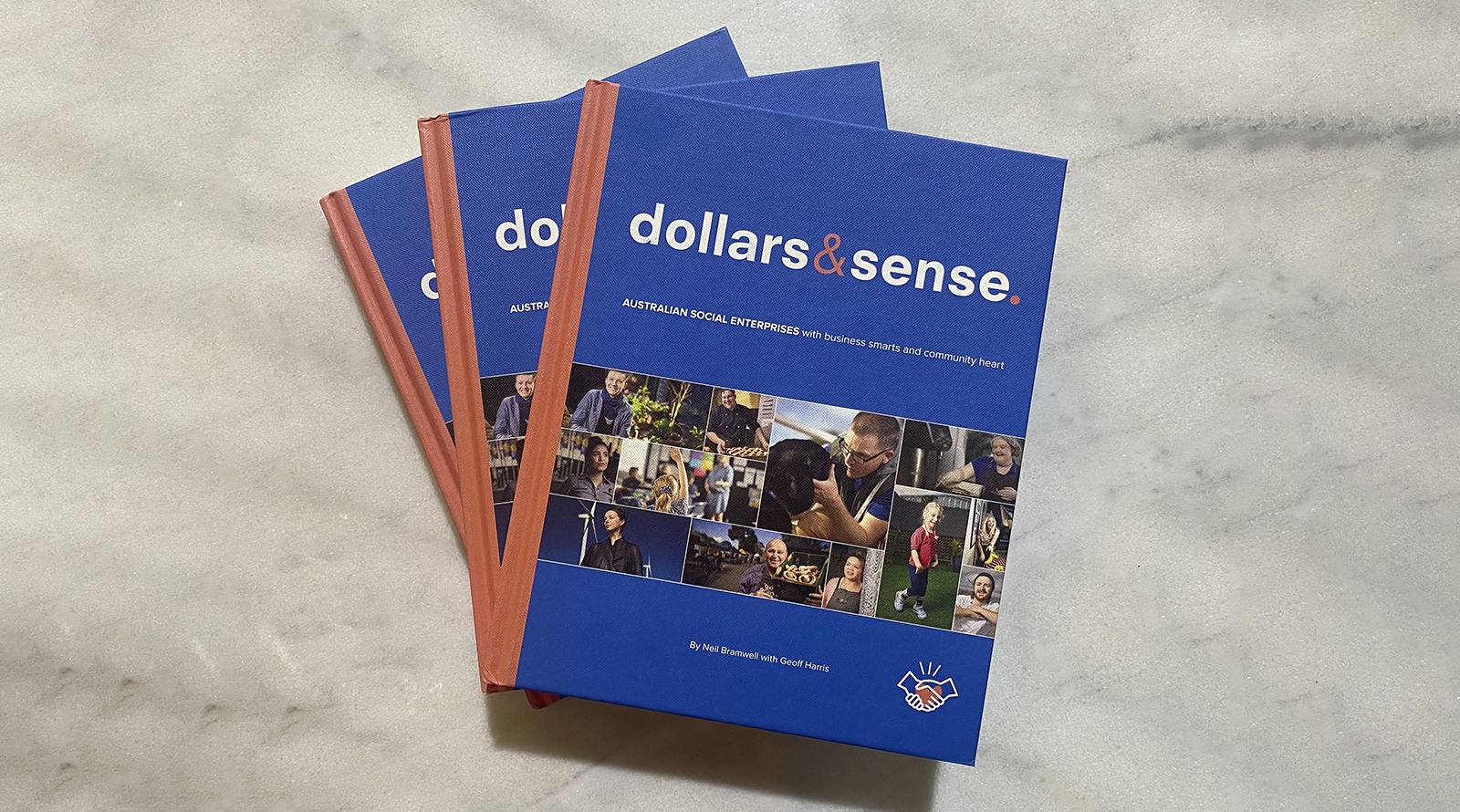The Harris Family commissioned the book ‘Dollars and Sense’ as a resource to improve Australia’s understanding of Social Enterprises.

Introduction
by Geoff Harris
I FIRST became aware of social enterprise from an article on STREAT in The Age in July, 2012. Until then, like most Australians, I had no idea what a social enterprise was but the concept immediately struck a business chord in me. A business creating income for a social cause really did attract me.
Having been on the board of the youth-based charity Reach for a decade, I knew how small-to-medium sized charities struggled annually to raise enough money to exist from philanthropic donations and government support. Senior management devoted so much time and resource to this task year-on-year. Reading about STREAT was a lightbulb moment – social enterprise was an obvious disruptor for the old-school charity model.
The work carried about by STREAT with disadvantaged young people also spoke to me at a personal level. As a skinny, pimply 14-year-old wearing glasses, I was badly bullied at school. The influence of a strong father figure was so important for me in overcoming those difficult times, but not every kid has this parental support. In fact, parents can be part of the problem. I left school after year 10 and was able to make a successful career for myself. But many teenagers fall through the cracks in similar situations. That’s why I support youth-based organisations such as STREAT, Reach and Whitelion.
I used to just write a cheque or provide mentoring support, but now I see the additional benefits that their social enterprises create. Not only is revenue being created to support these young people, employment opportunities are also provided within the social enterprises. This generates self-esteem, self-worth and, critically, a real sense of belonging – qualities that are so often absent from their lives. These individuals are no longer on the welfare treadmill and will hopefully begin to make their own contribution to the community.
Social enterprise in Australia is at the infancy of its growth curve, but has so much potential to expand. As can be seen from our interview with Social Enterprise UK, the sector there is much more mature. There are around 68,000 social enterprises in the UK, with almost 1 in 5 showing an annual turnover of more than £1million, and 8% over £5million. One of the aims of this book is to stimulate debate around the future of the social enterprise sector in Australia. There is no doubt that lessons can be learned from other countries; namely the need for a peak body and a framework for governance.
Another goal of Dollars & Sense is to raise awareness of the important impact that social enterprises can generate. Our case studies contain valuable lessons that will help and encourage budding social entrepreneurs to take the plunge and create sustainable ventures. The book will also hopefully encourage corporate Australia and established businesses to generate their own impact by supporting the growth of these organisations. The more the Australian business community understands social enterprise, the greater will be their engagement with and procurement from the sector. Consumers will also have a clearer direction when making their spending choices.
For that reason Dollars & Sense had adopted a broad and flexible definition of social enterprise – commercial entities with business smarts and a community hearts. Not all of our featured social enterprises will meet everyone’s criteria for a social enterprise – but all of our social enterprises attempt to create social good from their business activities. The correct business model is essential and, without it, the social enterprise will not be sustainable and will not make a social contribution. Our aim is to explore and illuminate many different and innovative approaches.
There is a widespread recognition that traditional economic systems need to change. Australia is expected to spend nearly $200 billion on welfare next year. How can that be sustainable? Capitalism is all well good, but needs rules and boundaries. If we can create a bigger capitalistic economy with a social heart, then fewer people will fall through the cracks into multi-generational welfare.
Social enterprise may currently be an embryonic component of any transformation, but I am convinced it can play a significant role. Imagine the impact if Australia had 100,000 sustainable social enterprises by 2025, not today’s estimated 20,000. We hope that Dollars & Sense can help create a constructive narrative around issues facing the social enterprise sector and so play its own small part in achieving that transformation


